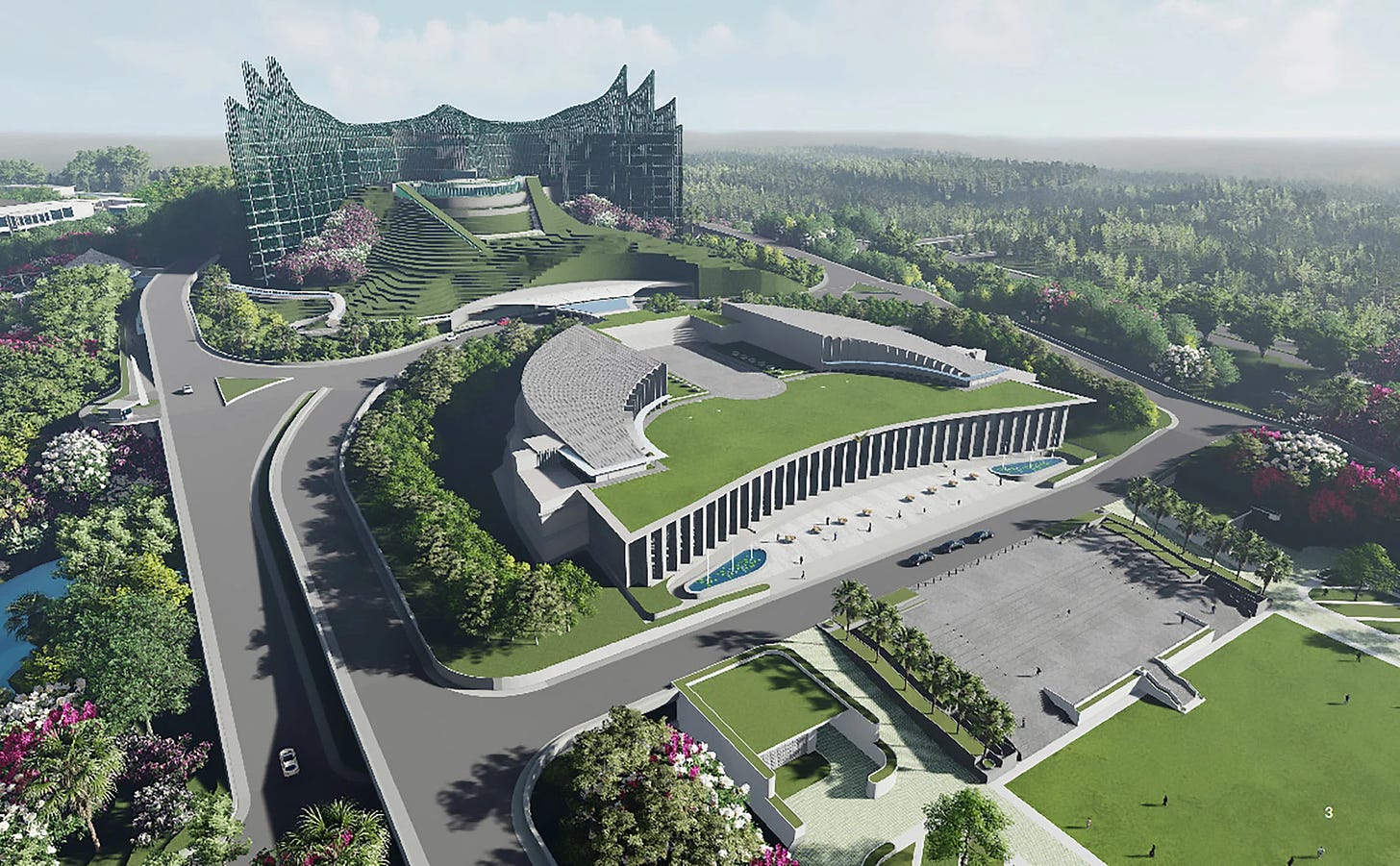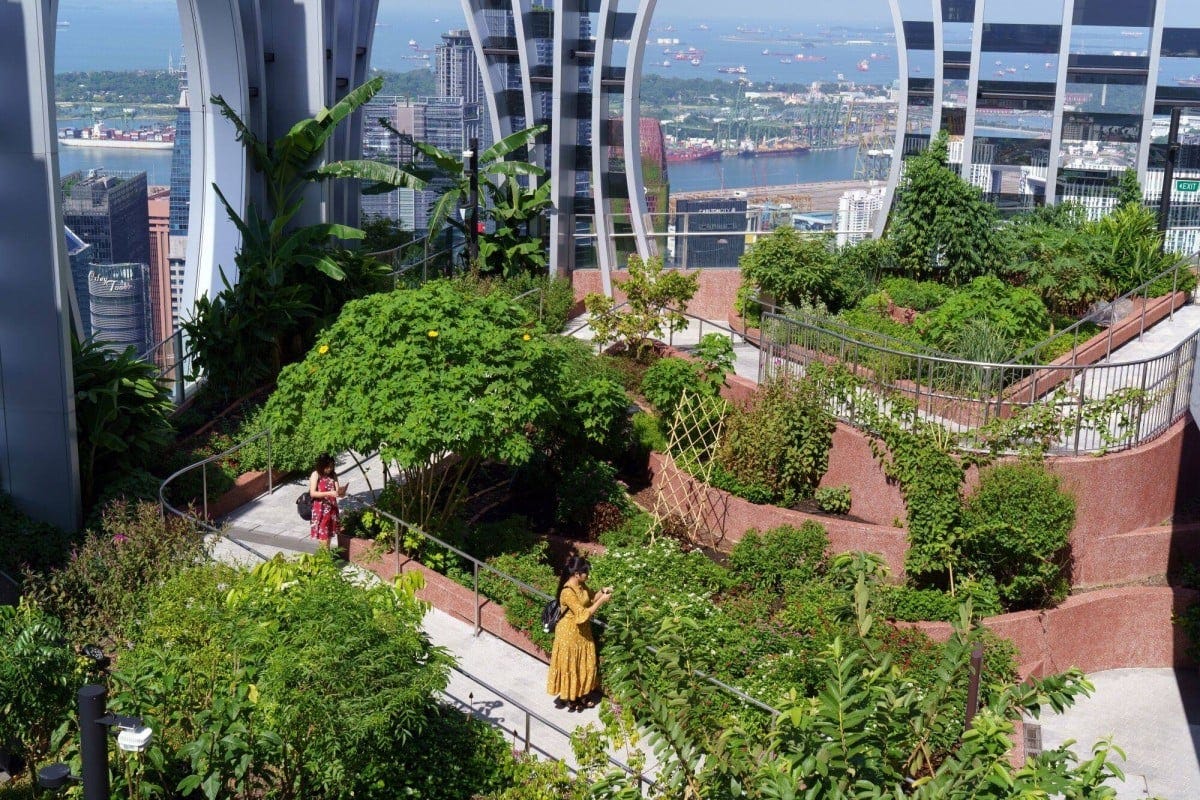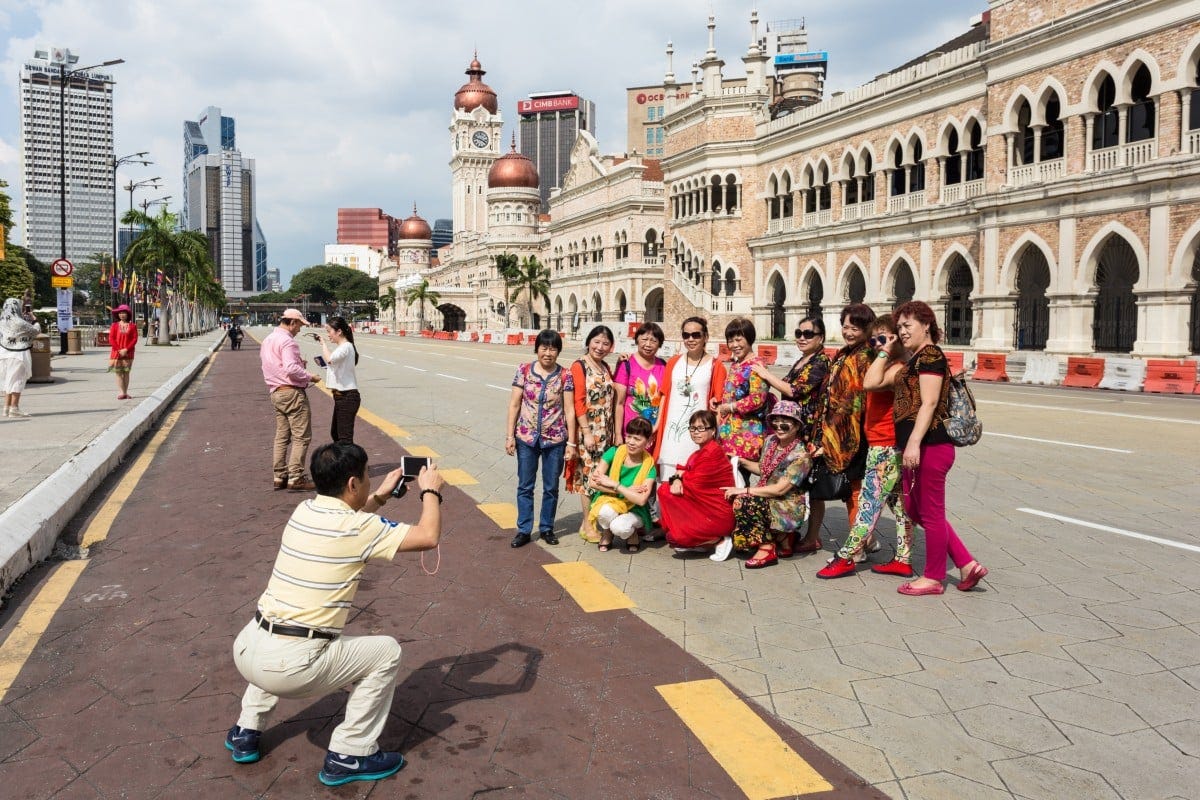Southeast Asian & World Briefs (29 Nov): UN climate summit but in Dubai; Uncertainty over Indonesia’s ambitious new capital
Welcome to Wednesday, readers!
In this edition, we explore pivotal events reshaping our global landscape. From the critical U.N. Climate Summit in Dubai, addressing urgent climate action amid global tensions, to Indonesia's ambitious but uncertain capital relocation project, these stories highlight significant geopolitical and socio-economic shifts. We also examine Singapore's transformative Green Plan 2030, Malaysia's strategic visa policy change to boost tourism, and Myanmar's escalating conflicts impacting regional stability. Dive into these impactful stories with us.
Deeper Reads for Curious Minds
Do let me know if you need this type of commentary summarised, but for now, I’ll put it out for any readers who want to dig deeper into some interesting stories, sometimes outside of our scope of Southeast Asia.
SCMP: Thailand wants to build a brand new shipping route. Why isn’t China buying?
The Land Bridge project aims to bypass the normal trade route in the Malacca Strait. If built, it will greatly shift the trade dynamic in Southeast Asia.
The New York Times: Growing Numbers of Chinese Migrants Are Crossing the Southern Border
Unprecedented Increase: Over 24,000 Chinese citizens have been apprehended crossing into the U.S. from Mexico in the last year, surpassing the total of the previous decade.
Migrants typically fly to Ecuador (visa-free entry) and traverse dangerous routes through Colombia and Panama, seeking asylum upon reaching the U.S.
The exodus is fueled by dissatisfaction with China's strict COVID-19 policies and the authoritarian regime. The phenomenon is known as the “run philosophy,” with citizens seeking better prospects in the U.S., Japan, and Europe.
Tables of Contents and Summaries
Geopolitics
🌍 U.N. Climate Summit: COP28’s Urgent Agenda Amid Global Tensions
The COP28 in Dubai focuses on accelerating action against climate change, with a backdrop of global conflicts affecting cooperation. Key discussions include progress on the Paris climate targets, establishing a new climate fund, and phasing out fossil fuels, although the outcomes are uncertain due to geopolitical complexities and leaked documents hinting at the UAE's oil and gas deal influences.
Social/Economic
🏗️ Uncertainty Surrounds Indonesia's USD30 Billion Capital Relocation Project
Indonesia's ambitious USD 30 billion project to move its capital faces skepticism due to a lack of foreign investment, with only Indonesian companies committing so far. The government's focus on domestic investors is seen as a cover for the lukewarm response from international backers.
🌱 Singapore's Green Transformation: From Garden City to City in Nature
Singapore's Green Plan 2030 aims to transform the city-state into a "City in Nature" with extensive parks and greenery. Key initiatives include planting 1 million trees, sustainable architecture, and integrating nature into urban development and education, though the approach is critiqued for its autocratic governance style.
🛂 Malaysia to Scrap Visa Requirements for Chinese and Indian Tourists
To boost tourism and economic growth, Malaysia will allow visa-free entry for Chinese and Indian tourists for up to 30 days. This decision coincides with Malaysia's 50-year diplomatic anniversary with China and is part of a reciprocal visa-exemption agreement.
🌏 Myanmar Ethnic Minority Group Seizes Border Crossing from Junta
An ethnic minority group in Myanmar has captured a key border crossing to China, affecting trade and signaling increased conflict. This move challenges the military junta's control and further impacts Myanmar's struggling economy.
Geopolitics
U.N. Climate Summit: COP28’s Urgent Agenda Amid Global Tensions
As COP28 begins in Dubai, the urgent focus is on Earth's rapid progression towards climate disaster, with governments lagging in response.
Diplomats from nearly 200 countries, including many heads of state, will convene to formulate plans to hasten the move away from fossil fuels.
The United Arab Emirates, a top oil producer, is hosting, drawing criticism from environmental activists.
The summit occurs amidst ongoing conflicts in the Middle East and Ukraine, posing challenges to international cooperation.
Key Focus Areas: Assessing the progress on the 2015 Paris climate targets, finalizing a new fund for climate-affected countries, and negotiating a political agreement on phasing out fossil fuels.
Likely Outcomes: The “loss and damage" fund is expected to be operational by COP28's end, with developing countries advocating for a non-World Bank-based operation. The energy transition agreement is anticipated but its ambition level remains uncertain.
Behind-the-Scenes Dynamics: Leaked documents suggest the UAE is using its host status to influence oil and gas deals.
Vietnam's Controversial Actions: After securing a deal to reduce coal use, Vietnam faced criticism for arresting key environmentalists.
Climate Migration: A groundbreaking case in Honduras could set a precedent for climate change-induced extreme weather being a valid reason for asylum.
Social/Economic
Uncertainty Surrounds Indonesia's USD30 Billion Capital Relocation Project
Indonesia's USD 30 billion capital relocation project in East Kalimantan faces uncertainty as hundreds of foreign investment commitments have not been realized, leading to skepticism among overseas backers.
Critics suggest that authorities' claims of prioritizing domestic investors in the project are an attempt to mask the lukewarm response to the new capital, Nusantara.
Factors contributing to the wait-and-see attitude among global investors include confusion over the government's infrastructure focus, political "election drama," and high interest rates.
Only locals: Indonesian President Joko Widodo highlighted that no real foreign investment has been made in the project, despite over 300 Letters of Intent (LOIs) being signed.
Only 21 companies, all Indonesian, have proceeded with their investments in Nusantara.
Foreign investors remain skeptical due to uncertainties around population projections for Nusantara.
The Nusantara Capital Authority clarified that foreign investors have partnered with Indonesian companies for investments in Nusantara, rather than making standalone investments.
Shaky grounds for now: Jakarta offers incentives such as long-term leases and tax benefits to attract foreign investors, but these incentives have raised questions about Indonesia's intentions.
Observers suggest that the government's emphasis on domestic investors is an attempt to cover up the project's struggles to attract foreign funding.
Singapore's Green Transformation: From Garden City to City in Nature by 2030
Ambitious Green Plan 2030: Prime Minister Lee Hsien Loong's goal is to evolve from a garden city to a "City in Nature," with extensive parks, gardens, and skyrise greenery, aiming for no citizen to be more than a 10-minute walk from a park.
The National Parks Board (NParks) plays a crucial role, ensuring that green spaces are integrated with urban development, with plans to plant 1 million new trees by 2030.
The city boasts sustainable features like the Parkroyal on Pickering hotel with its vertical gardens and the eco-efficient Gardens by the Bay.
Architectural Marvels: "The Jewel" at Changi Airport, a glass structure with a 40-meter indoor waterfall and terraced gardens, exemplifies Singapore's commitment to green architecture.
Orchid Diplomacy: The National Orchid Garden, with the world's largest collection of orchids, names new species after visiting dignitaries, reflecting Singapore’s unique blend of nature and diplomacy.
Futuristic Greenery: Singapore features unique green innovations like vertical jungles on buildings and the iconic 18 Supertrees, showcasing over 160,000 plants.
Environmental Education and Technology: Singapore integrates nature conservation into its education system and employs technology like solar-powered smart bins and affordable public transport to enhance its green initiatives.
Visionary Beginnings: Lee Kuan Yew's 1960s vision of a "garden city" has transformed Singapore into one of the world’s greenest metropolises, and a leader in sustainable building design.
Balancing Autocracy and Environmentalism: Despite its environmental achievements, Singapore faces criticism for its autocratic governance and repressive laws.
Malaysia to Scrap Visa Requirements for Chinese and Indian Tourists
Malaysia will eliminate visa requirements for Chinese and Indian citizens starting December 1, allowing them to stay visa-free for up to 30 days.
This move aims to boost tourism and economic growth in Malaysia, with a focus on attracting visitors and investors from India and China.
The visa exemption will be subject to security screening, and individuals with criminal records or a risk of violence will not be eligible.
Free entry between Malaysia and China: Malaysia is celebrating 50 years of diplomatic ties with China in the coming year.
China recently announced visa-free entry for citizens of six countries, including Malaysia, from December 1, 2023, until November 30, 2024.
China and India are among Malaysia's top tourism source markets, with a significant drop in arrivals due to the pandemic.
Myanmar Ethnic Minority Group Seizes Border Crossing from Junta
An ethnic minority armed group in Myanmar has taken control of a lucrative border crossing to China from the country's ruling junta.
Clashes erupted near the Chinese border as an alliance of three ethnic minority groups launched an offensive against the military in October, capturing military positions and an important trade town.
The Myanmar National Democratic Alliance Army (MNDAA) reported capturing the Kyin San Kyawt border gate, disrupting commerce routes for the military-led government.
Strategic area: The gate is a major trading point along the Myanmar-China border.
The fighting has further damaged Myanmar's struggling economy and disrupted vital cross-border trade.







